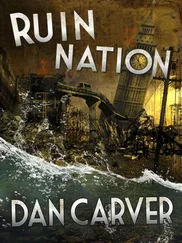Dan Singer - Start-up Nation
Здесь есть возможность читать онлайн «Dan Singer - Start-up Nation» весь текст электронной книги совершенно бесплатно (целиком полную версию без сокращений). В некоторых случаях можно слушать аудио, скачать через торрент в формате fb2 и присутствует краткое содержание. Жанр: Старинная литература, на английском языке. Описание произведения, (предисловие) а так же отзывы посетителей доступны на портале библиотеки ЛибКат.
- Название:Start-up Nation
- Автор:
- Жанр:
- Год:неизвестен
- ISBN:нет данных
- Рейтинг книги:3.5 / 5. Голосов: 2
-
Избранное:Добавить в избранное
- Отзывы:
-
Ваша оценка:
- 80
- 1
- 2
- 3
- 4
- 5
Start-up Nation: краткое содержание, описание и аннотация
Предлагаем к чтению аннотацию, описание, краткое содержание или предисловие (зависит от того, что написал сам автор книги «Start-up Nation»). Если вы не нашли необходимую информацию о книге — напишите в комментариях, мы постараемся отыскать её.
Start-up Nation — читать онлайн бесплатно полную книгу (весь текст) целиком
Ниже представлен текст книги, разбитый по страницам. Система сохранения места последней прочитанной страницы, позволяет с удобством читать онлайн бесплатно книгу «Start-up Nation», без необходимости каждый раз заново искать на чём Вы остановились. Поставьте закладку, и сможете в любой момент перейти на страницу, на которой закончили чтение.
Интервал:
Закладка:
Yet the Israeli reaction was not so much a call to tighten the ranks as it was to loosen them: to work harder at devolving authority and responsibility to lower levels and to do more to encourage junior officers to challenge their higher-ups. This radical push, moreover, was seen as one of restoring the “core values,” not liberalizing them.
What does all this mean for a country like Singapore, trying not just to emulate Israel’s military structure but to inject some of Israel’s inventiveness into its economy, as well? As noted above, Singapore differs dramatically from Israel both in its order and in its insistence on obedience . Singapore’s politeness, manicured lawns, and one-party rule have cleansed the fluidity from its economy.
Fluidity, according to a new school of economists studying key ingredients for entrepreneurialism, is produced when people can cross boundaries, turn societal norms upside down, and agitate in a free-market economy, all to catalyze radical ideas. Or as Harvard psychologist Howard Gardner puts it, different types of “asynchrony . . . [such as] a lack of fit, an unusual pattern, or an irregularity” have the power to stimulate economic creativity. 19
Thus, the most formidable obstacle to fluidity is order. A bit of mayhem is not only healthy but critical. The leading thinkers in this area—economists William Baumol, Robert Litan, and Carl Schramm—argue that the ideal environment is best described by a concept in “complexity science” called the “edge of chaos.” They define that edge as “the estuary region where rigid order and random chaos meet and generate high levels of adaptation, complexity, and creativity.” 20
This is precisely the environment in which Israeli entrepreneurs thrive. They benefit from the stable institutions and rule of law that exist in an advanced democracy. Yet they also benefit from Israel’s nonhierarchical culture, where everyone in business belongs to overlapping networks produced by small communities, common army service, geographic proximity, and informality.
It is no coincidence that the military—particularly the elite units in the air force, infantry, intelligence, and information technology arenas—have served as incubators for thousands of Israeli high-tech start-ups. Other countries may generate them in small numbers, but the Israeli economy benefits from the phenomena of rosh gadol thinking and critical reassessment, undergirded by a doctrine of experimentation, rather than standardization, wide enough to have a national and even a global impact.
PART III
Beginnings
CHAPTER 6
An Industrial Policy That Worked
It was not simple to convince people that growing fish in the desert makes sense.
—PROFESSOR SAMUEL APPELBAUM
THE STORY OF HOW ISRAEL got to where it is—fiftyfold economic growth within sixty years—is more than the story of Israeli character idiosyncrasies, battle-tested entrepreneurship, or geopolitical happenstance. The story must include the effects of government policies, which had to be as adaptive as Israel’s military and its citizens, and suffered as many turns of fortune.
The history of Israel’s economy is one of two great leaps, separated by a period of stagnation and hyperinflation. The government’s macroeconomic policies have played an important role in speeding the country’s growth, then reversing it, and then unleashing it in ways that even the government never expected.
The first great leap occurred from 1948 to 1970, a period during which per capita GDP almost quadrupled and the population tripled, even amidst Israel’s engagement in three major wars. 1The second was from 1990 until today, during which time the country was transformed from a sleepy backwater into a leading center of global innovation. Dramatically different—almost opposite—means were employed: the first period of expansion was achieved through an entrepreneurial government that dominated a small, primitive private sector; the second period through a thriving entrepreneurial private sector that was initially catalyzed by government action.
The roots of the first period of economic growth can be traced to well before the country’s founding—all the way back to the late nineteenth century. For example, in the 1880s, a group of Jewish settlers tried to build a farming community in a new town they had founded— Petach Tikva—a few miles from what is now Tel Aviv. After first living in tents, the pioneers hired local Arab villagers to build mud cabins for them. But when it rained the cabins leaked even more than the tents, and when the river swelled beyond its banks, the structures melted away. Some of the settlers were struck by malaria and dysentery. After just a few winters, the farmers’ savings had been exhausted, their access to roads washed out, and their families reduced to near starvation.
In 1883, though, things began to look up. The French-Jewish banker and philanthropist Edmond de Rothschild provided desperately needed financial support. An agricultural expert advised the settlers to plant eucalyptus trees where the river’s overflow created swamps; the roots of these trees quickly drained the swamps dry. The incidence of malaria dropped dramatically, and more families came to live in the growing community. 2
Beginning in the 1920s and continuing through the decade, labor productivity in the Yishuv—the Jewish community of pre-state Palestine—increased by 80 percent, producing a fourfold increase in national product as the Jewish population doubled in size. Strikingly, as a global depression raged from 1931 to 1935, the average annual economic growth for Jews and Arabs in Palestine was 28 and 14 percent, respectively. 3
The small communities established by settlers, like those of Petach Tikva, would never have been able to achieve such explosive growth on their own. They were joined by waves of new immigrants who contributed not only their numbers but a pioneering ethos that overturned the charity-based economy.
One of those immigrants was a twenty-year-old lawyer named David Gruen, who traveled from Poland in 1906. Upon arrival, he Hebraized his name to Ben-Gurion—naming himself after a Jewish general from the Roman period of 70 c.e. —and quickly rose to become the uncontested leader of the Yishuv. The Israeli author Amos Oz has written that “in the early years of the state, many Israelis saw him as a combination of Moses, George Washington, Garibaldi and God Almighty.” 4
Ben-Gurion was also Israel’s first national entrepreneur. Theodore Herzl may have conceptualized a vision for Jewish sovereignty and begun to galvanize Diaspora Jews around a romantic notion of a sovereign state, but it was Ben-Gurion who organized this vision from an idea into a functioning nation-state. After World War II, Winston Churchill described the United States Army general George Marshall as the Allied Powers’ “organizer of victory.” To paraphrase Churchill, Ben-Gurion was the “organizer of Zionism.” Or in business terms, Ben-Gurion was the “operations guy” who actually built the country.
The challenge facing Ben-Gurion in operational management and logistics planning was extremely complex. Consider just one issue: how to absorb waves of immigrants. From the 1930s through the end of the Holocaust, as millions of European Jews were being deported to concentration camps, some managed to flee to Palestine. Others who escaped, however, were denied asylum by different countries and forced to remain in hiding, often in horrendous conditions. After 1939 the British government, which was the colonial power in charge of Palestine, imposed draconian restrictions on immigration, a policy known as the “White Paper.” British authorities turned away most of those trying to seek refuge in Palestine.
Читать дальшеИнтервал:
Закладка:
Похожие книги на «Start-up Nation»
Представляем Вашему вниманию похожие книги на «Start-up Nation» списком для выбора. Мы отобрали схожую по названию и смыслу литературу в надежде предоставить читателям больше вариантов отыскать новые, интересные, ещё непрочитанные произведения.
Обсуждение, отзывы о книге «Start-up Nation» и просто собственные мнения читателей. Оставьте ваши комментарии, напишите, что Вы думаете о произведении, его смысле или главных героях. Укажите что конкретно понравилось, а что нет, и почему Вы так считаете.












